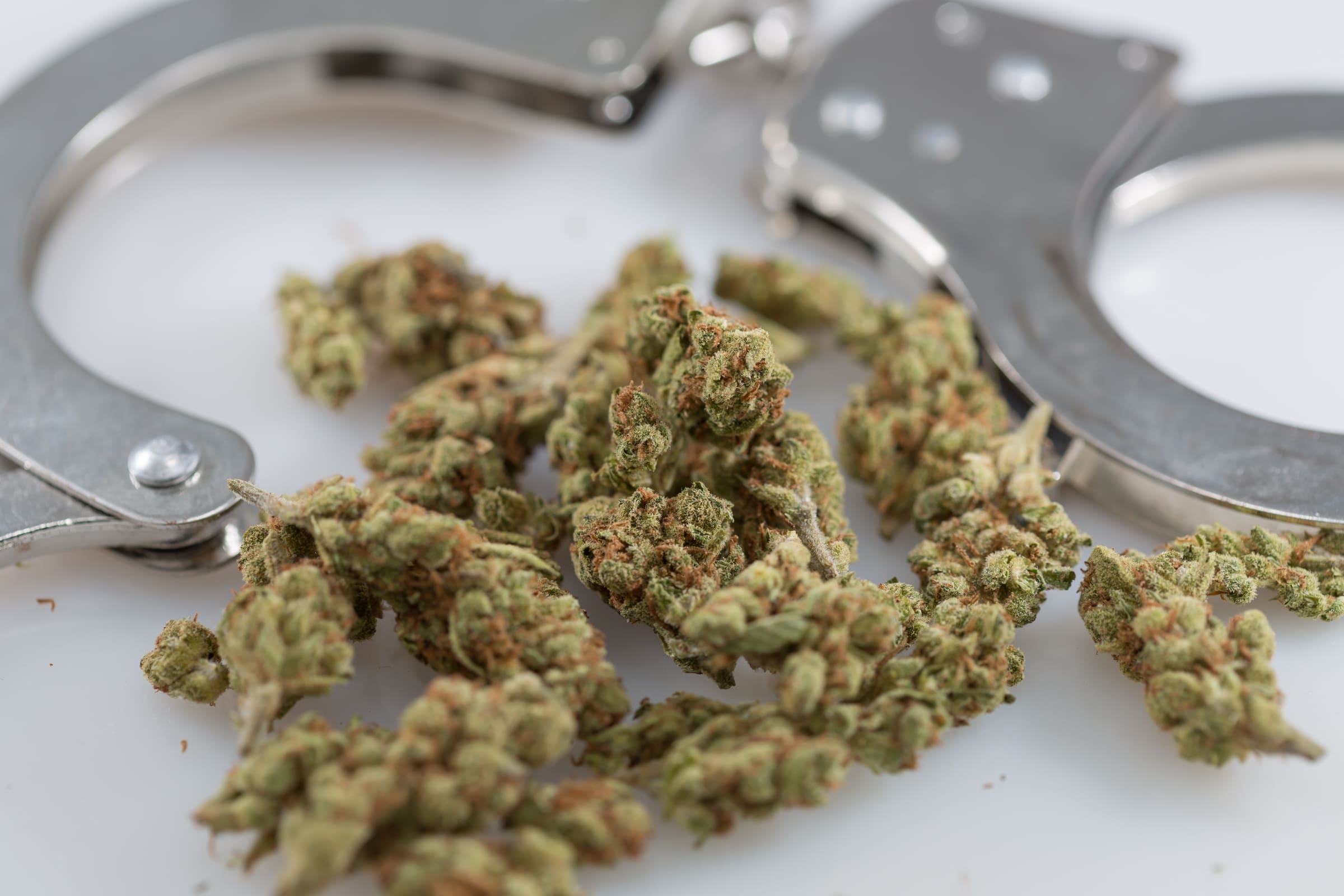Politics
Hawaii Marijuana Legalization Bill Must Be Strengthened With Provisions To Free Current Prisoners (Op-Ed)

“The creation of a resentencing process will provide a fair pathway to relief for individuals who otherwise will continue to be punished by laws inspired by the failed ‘War on Drugs.'”
By Frank Stiefel and Gracie Johnson, Last Prisoner Project
Last week, Hawaii Senators approved Senate Bill 669, moving the state one step closer to legalizing adult-use cannabis. Even more encouraging is that the bill now includes provisions that would create a state-initiated record clearance process, a recommendation the Last Prisoner Project put forth earlier this year.
While we are thrilled that this bill provides a process to clear cannabis records automatically, it does not go far enough. The bill fails to establish a state-initiated resentencing process, through which individuals still serving cannabis sentences should receive relief. It’s important to note that record clearance is for individuals who have already served their sentence—while resentencing is for individuals still being punished.
When a state ends the prohibition of cannabis, it is acknowledging that public interest has turned against the continued criminalization of cannabis. The magnitude of this shift in perception is clear when you step back and examine the national landscape of legalization.
Adult-use cannabis is now legal in 21 states, three territories, and D.C.—and with a majority of the state’s residents in favor of legalization, Hawaii is looking to follow those footsteps. However, many people don’t realize that repealing cannabis prohibition doesn’t necessarily lead to the release of those still serving sentences for cannabis-related convictions. True legalization requires the government to also create a state-initiated resentencing process.
State-initiated resentencing is a process that requires the courts to reconsider sentences for individuals who may be incarcerated or under supervision for behavior that the state has shifted its approach toward criminalizing. It’s critical that this process be provided to eligible individuals automatically, rather than only being available to those who petition from prison.
Unfortunately, because Hawaiian law currently lacks a robust resentencing process, there are few legal avenues through which someone’s cannabis-related sentence could be reviewed and modified in light of legalization. Senate Bill 669 should be amended to ensure that individuals sitting in jails and prisons, or on probation, are given the opportunity for their cases to be heard by a judge and their sentences reconsidered.
While we are thrilled by some aspects of Hawaii’s Senate Bill 669, it simply does not go far enough to ensure that those *currently* incarcerated for cannabis in the state are provided a pathway to relief.
— Last Prisoner Project (@lastprisonerprj) March 15, 2023
Some critics of resentencing argue that it would allow people to be automatically released from incarceration or supervision without oversight. This couldn’t be farther from the truth. Creating a resentencing process simply means that an individual will be provided a new hearing where a judge will consider—based on the state’s adoption of cannabis legalization—whether the sentence should be reduced.
Both justice and public safety can be achieved through resentencing—it is not one at the expense of the other. Reducing incarceration preserves limited tax dollars for true risks to the community, rather than wasting it on locking people up unnecessarily. And reconsidering old sentences in light of shifting public attitudes and advancements in research is smart, responsible policy. Studies show that severe sentences do not deter crime, people age out of crime, and that incarceration actually makes communities less safe. Resentencing is an evidence-based policy that promotes public safety, and cannabis resentencing promotes justice for the harms wrought by prohibition.
Over the past year, LPP has worked with members of Hawaii’s Dual Use of Cannabis Task Force to design evidence-based policy recommendations focused on retroactive relief. The state-initiated record clearance provisions in the bill will remove barriers to success for deserving individuals in the community who are still living with low-level cannabis records, and we hope to see the policy approved.
As Senate Bill 669 now moves to the State House, we encourage Hawaii’s lawmakers to refer to the resentencing recommendations we made, if they intend to adopt a system of legalization that is truly just.
The creation of a resentencing process will provide a fair pathway to relief for individuals who otherwise will continue to be punished by laws inspired by the failed “War on Drugs.” Hawaii could become a national model by simultaneously establishing a legal cannabis marketplace while also redressing the grave injustices perpetrated during prohibition.
We encourage the state’s lawmakers to seize this opportunity.
Frank Stiefel is a Senior Policy Associate and Gracie Johnson is the State Policy Director at the Last Prisoner Project. For more information, please visit https://www.lastprisonerproject.org.




